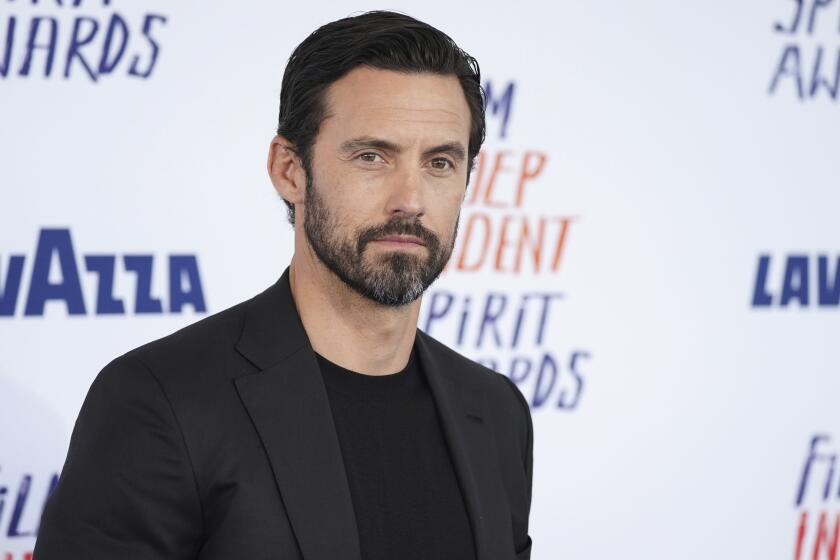EMI Spins Record Hits in Virgin Territory
- Share via
Competitors laughed out loud five years ago when EMI Music bought Virgin Records for $1 billion, predicting that the British conglomerate would never turn a profit on its investment.
The betting was that Virgin’s U.S. division was headed for disaster following the sudden exit of Jeff Ayeroff and Jordan Harris, the creative management team that put the label’s domestic arm on the map with such pop stars as Paula Abdul and Neneh Cherry.
Indeed, few rivals--or executives within the EMI hierarchy, for that matter--believed that Phil Quartararo, the veteran promotion man whom Virgin chief Ken Berry promoted to replace Ayeroff and Harris, had the creative chops or business acumen to run the label.
Four years later, Virgin is EMI’s strongest international profit center, generating the bulk of its $5.8 billion in worldwide sales last year. Hits from such Virgin acts as the Spice Girls, the Smashing Pumpkins, Scarface and Blur have helped drive EMI from last to third place in the race for U.S. market share and helped Quartararo’s division to corner an estimated 7% share of U.S. music sales so far in 1997.
On Quartararo’s watch, Virgin U.S.’ sales have doubled from about $70 million in 1992 to an estimated $140 million last year, sources said. Revenue at Virgin U.S. in 1997 is projected at $200 million and expected to yield an estimated $25 million in profit.
“It took a while to get the machine running, but look at us now: We’re making hits and we’re making money,” said Quartararo, in an interview in Virgin’s Beverly Hills office. “I know what people were saying when Ken gave me this job and I wasn’t offended. This is a very cynical business and I learned a long time ago not to take all the mean things people say about you to heart. The trick is to just persevere. I’m proof that hard work pays off.”
*
Virgin’s turnaround comes at a time when Quartararo’s contract is about to run out and during the middle of a massive corporate shake-up at EMI Music. Indeed, EMI took a $192-million hit last month to restructure its North American division and dismissed dozens of employees, including two of its most senior executives.
As part of the restructuring plan, Berry, chairman of Virgin and head of EMI’s international sector, was promoted to oversee all of EMI’s North American labels. Berry, who now operates under the new title of president of EMI Recorded Music, declined comment regarding speculation about further downsizing and consolidation at EMI--which sources say could be announced as early as today.
The corporation is expected to close the New York offices of its sluggish Enclave and EMI Records labels, with executives Davitt Sigerson and Tom Zutaut as well as dozens of other employees slated to lose their jobs, sources said. Some Enclave and EMI artists are likely to be slashed from the roster, but others--including Jon Secada, Luther Vandross, D’Angelo and Fluffy--are expected to be folded into Virgin and Gary Gersh’s Capitol Records, which is also on a roll with three hits in the top 20.
There has been much industry speculation that the cost cuts are driven by a desire at EMI to appear more attractive to such corporate suitors as Seagram-owned Universal Music Group, which has been rumored to be negotiating to purchase or merge with EMI. High-level sources at both companies, however, denied that any talks are taking place.
It is unclear how all the corporate drama will come to bear on Quartararo or his future at the company. The 41-year-old executive refused to discuss the numerous changes at EMI and denied industry gossip that he has been approached to work at Universal and Disney’s Hollywood Records.
Quartararo, who got his start 20 years ago pitching records to college radio stations for A&M; Records, is widely regarded in music industry circles as a savvy marketing and promotion expert. Following a brief stint as head of the promotion department at Island Records, the Syracuse University graduate was hired in 1986 by Virgin to help Ayeroff and Harris launch Virgin’s U.S. label.
Since joining Virgin, his promotional skills have been tapped to help transform a string of unknown acts, including Abdul, into household names. Before taking over as president of Virgin U.S., the executive spent a year at the helm of Virgin-owned Charisma, which had few hits and lost millions before EMI folded it into the corporation after purchasing Virgin in 1992.
*
Although Quartararo is now widely regarded as an industrious executive who gets along well with acts on the Virgin roster, critics contend that he is still lacking in creative vision. Critics also say that the financial turnaround at Virgin U.S. has less to do with Quartararo than with the blockbuster success of the Spice Girls, a British pop phenomenon imported from Virgin’s international division.
To be sure, Virgin’s biggest selling acts--including Janet Jackson, the Rolling Stones, Tina Turner, Stevie Wonder and the Smashing Pumpkins--were signed under the previous regime. Quartararo does not disagree with critics that he still has a lot to learn about picking talent.
“I’ve never pretended to be Mr. Music Man,” the executive said. “But you know what? It takes one kind of talent to discover great music and another kind of talent to transform that music into a hit record--and that’s what I do. Every day on this job I learn more about the creative side. I’ve got good teachers.”
Quartararo credits Berry and members of Virgin’s artist and repertoire team with having the foresight to broaden the company’s musical palette over the past four years from pop and rock into rap, blues, new age and compilation albums. Virgin’s alliance with controversial Rap-A-Lot records has spawned several top 10 hits from such rap stars as Scarface and the Geto Boys, and its recent foray into compilations and soundtracks has yielded a string of chart-ranking hits.
Berry’s hands-on approach to management has worked well for Virgin. Still, the company remains dogged by gossip inside and outside its own offices about meddling by Berry’s wife, Nancy Berry, who is executive vice president of Virgin Music Group Worldwide. Quartararo refused to discuss rumors about conflicts between his boss’ wife and artist managers, lawyers and Virgin employees. Neither of the Berrys returned calls.
Quartararo did say that he was pleased that EMI decided to grant Ken Berry a much broader role in determining the future of the entire corporation.
“I think Ken’s elevation is going to quickly bring a great deal of continuity to the operation worldwide,” Quartararo said. “I know the corporation has been criticized previously for being somewhat dysfunctional, but I believe that those days are behind us.”
More to Read
The biggest entertainment stories
Get our big stories about Hollywood, film, television, music, arts, culture and more right in your inbox as soon as they publish.
You may occasionally receive promotional content from the Los Angeles Times.










